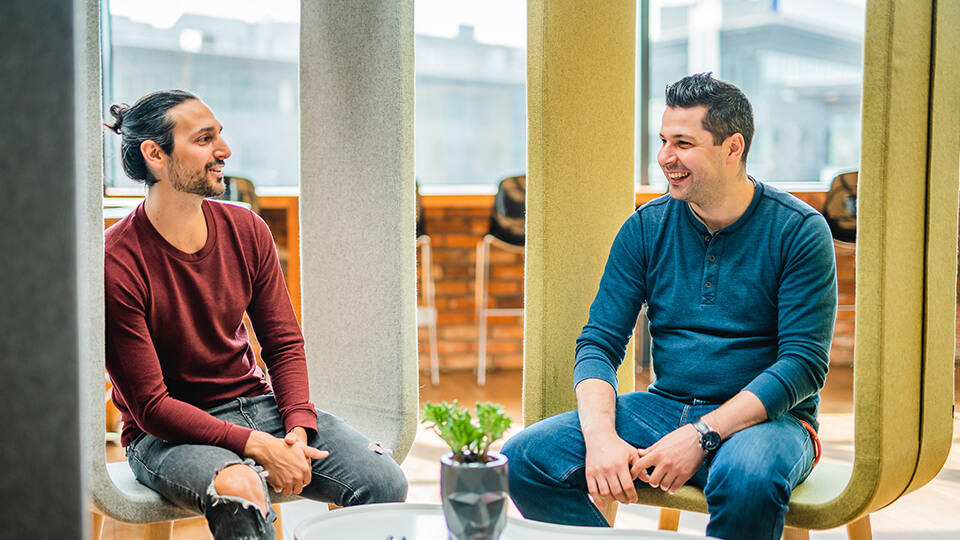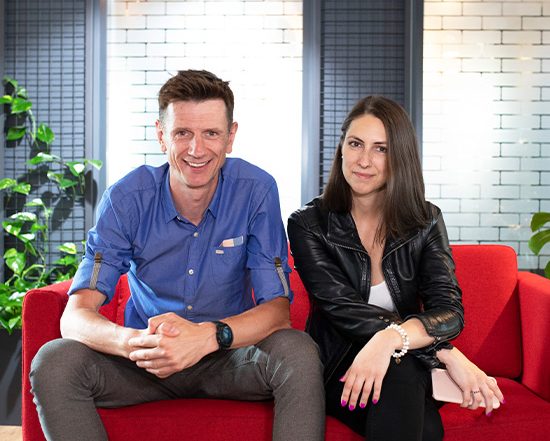
You need a mentor in the VUCA world part 2

Interview with Joanna Malinowska-Parzydło, mentor, Executive Partner at the Younicorn consulting company, founder of the Polish Mentoring Association, coorganiser of the Mentors4Members programme at Brain Embassy, a Brainer.
Differences between mentoring, coaching, and consulting
The role of a good mentor is to point at the crux of the matter and show the way tried by the mentor for the goal that is important for the mentee. The mentor is supposed to get to the source of motivation and remind the mentee that a person can develop in five main areas, that is, mind, emotions, body, spirituality and the quality of relationships, both with ourselves and our surroundings. A good mentor helps to design a long-term success by finding the best in someone. He or she can point at someone’s strengths and share their own experience without expecting that the mentee will copy and apply it in their private life and in business. Good mentoring is about helping someone find hope, strength and potential in themselves.
An efficient coach, as distinct from a mentor, does not have to be successful in the client’s field, or be an authority in a certain business area. He or she does not have to know the path leading to success for a certain case, while a mentor has gone along this path and can share their interesting experience.
Consulting in turn is a business agreement consisting in buying from a consultant solutions and services in the areas in which he or she is experienced.
A mentor and a mentee - the importance of reliability and personal consistency
The practice of efficient mentoring programmes has shown that a mentor is a person who can share their life and business experience, who is bold in action, curious about other people, who builds trust and efficacious relationships.
One should start their adventure as a professional mentor from the following 7 steps: [frame]
- Take a large piece of paper and write down what you can share with others. What competencies have you acquired, what expertise have you got, what are your experiences and passions, what field are you an authority in.
- Give yourself an honest answer to the following question: What’s the point? Why would I like to share it with someone? What do I expect? A good mentor builds a really close relationship with their mentee. Are you ready to speak about your life, share both your successes and failures, open yourself to someone you do not even know at the beginning?
- Look at your calendar: Will you really find the time to give somebody your attention?
- Think of who you want to work with as a mentor: with business people, young entrepreneurs, talented youth, students, people entering the job market, women, single fathers, owners of start-ups? What is your target group?
- Look for an organisation which, by building a good brand and maintaining a good reputation, professionally organises mentoring programmes. Submit your application. You will be invited for a meeting during which you will be required to tell more about yourself; you will also find out what knowledge, skills and attitudes are expected from mentors.
- Different organisations use different ways to prepare mentors for action: sometimes at workshops and trainings, sometimes you get information on what are the objectives of the programme you are joining, what are the tasks expected from you.
- You will be introduced to the mentees. It is possible that several people will be eager to work with you. In the end you will decide whom you will be meeting on a regular basis. Remember that choosing the right mentor-mentee team is a key to success.
Mentoring benefits for the mentor
The list of benefits for the mentee resulting from good mentoring:
- Development of personal and social competencies
- Support in defining challenges, “maps”, flexible and ambitious long-term objectives consistent with someone’s own potential
- Moving beyond someone’s thought patterns
- Practical and theoretical support in business projects or those related to the career path
- Support in making difficult decisions
- Real savings due to having the costs of real threats shown
- A portion of motivation to develop and improve yourself, often coming from the message “you can do it!”
- Inspiration
- Receiving honest feedback
- Less concern about making a mistake / increased motivation and sense of security
- Building self-esteem
- Attention and time given to the mentee by a friendly professional, an expert, and a master
- Important relationship, sometimes for the whole life
The list of benefits for the mentor resulting from a good mentoring relationship:
- Drawing satisfaction from sharing something and from the mentee’s development
- Results in the mentee’s successes
- Satisfaction from bringing help and sharing experience
- New possibilities related to the role of mentor, important both in business and socially - stimulation to further self-development without only looking to someone’s own laurels
- An important relationship, sometimes for the whole life
- And last but not least - the important feeling of being useful!
The conditions for a well-thought-out mentoring programme to be successful:
- Professional coordinator of the mentoring programme, communicating clearly the programme objectives and making sure the agreed rules and values are followed
- Well-described objectives and principles of the programme together with indicators allowing to recognise that the programme is going as assumed
- Effective and integrated communication in and around the programme
- Respecting the select character of the programme - the participants, both mentors and mentees should respect the time and attention devoted to them
- Precise criteria for the selection of participants
- Rules of the contract describing mutual expectations and the roles in the mentoring relationship
Mentor - a role not for everyone
Being a mentor is a very responsible role. It means having an influence on someone, analysing their professional and personal choices, asking questions which might become a dangerous tool if used by an incompetent or immature person. For such a responsible role, it is worth putting emphasis on verifying the maturity and experience of potential mentors. Not everyone can and should be a mentor. Except some experience (which is not always correlated with someone’s age), knowledge and competencies, the will to share knowledge and skills, and qualifications to inspire and stimulate others to develop are also needed. The practice of successful mentoring programme shows that a mentor is a person with suitable business experience, sharing it skilfully, bold in action, self-aware and authentic, curious about others, building trust and successful relationships, but most of all - faithful to high ethical standards. These features increase the chance that the mentor has the capability to build a good mentoring relationship.
Mentoring process - goal-oriented work
Contemporary man is more often seen as a human doing than a human being. Their most often repeated mantra is “I don’t have time” although they have had 12/24 hours ever since the clock was invented. Time is life and it should be treated as the most precious resource. That is why also in mentoring both sides should make sure that clear rules are worded for cooperation, communication during work, preparing the schedule and the meeting calendar, responsibility of the mentee for meeting planning and giving the mentor the reason for satisfactory cooperation. But most of all - everyone should show respect and mindfulness, and preserve confidentiality necessary to share success and failure stories in an open way.
Time for mentoring?
When you feel that you got stuck in your professional or personal life and you need partnership, support, mutual trust and confidentiality - search for a mentor.
And similarly - if you are an experienced and mature person, a professional searching for the sense of your work and new energy - recruit for yourself a mentee who needs your experience.
My mentor experience has taught me that relationships with mentees become as important as friendships for years, although they are something totally different. I truly recommend it!








